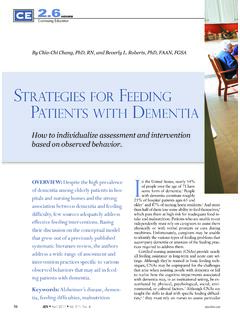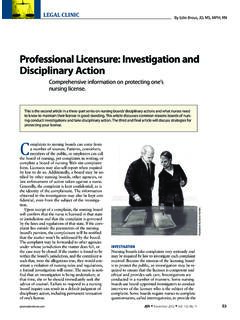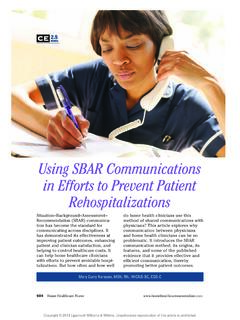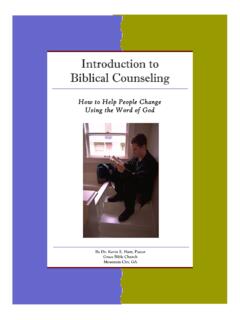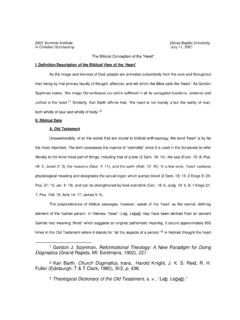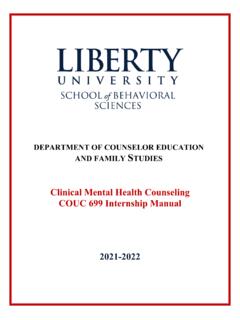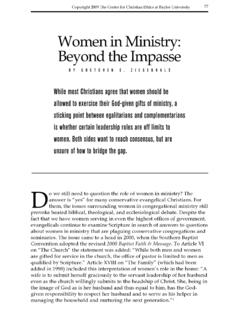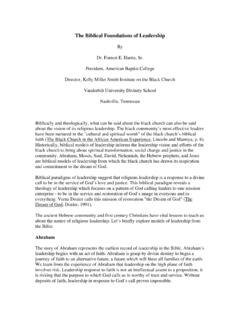Transcription of Ethical Challenges When Caring for Orthodox Jewish ...
1 Ethical Challenges When Caring for OrthodoxJewish Patients at the End of LifeToby Bressler, PhD, RN, OCN Beth Popp, MD, FACP, FAAHPM, HMDCD ying is a deeply personal process. The personal values,goals, and experiences of a lifetime come to the forefrontduring the end of life and may be shaped to some degreeby the religious and cultural identity of the patient andfamily. When patients are part of a faith-based, religious,or cultural minority group, it can be particularlychallenging for the clinical care team to gain theunderstanding and insights needed to reconcile disparitiesbetween majority and minority values. This article uses acase study to illustrate and review Ethical issues, whichfrequently occur and can be anticipated in the end-of-lifecare of patients who identify themselves as OrthodoxJews.
2 Although the specifics are unique to this faith-basedminority group, the process of identifying, educating, anddeveloping a means to incorporate faith-based andcultural minority beliefs and values in the provision of carecan be applied to other such minority groups that theclinical team may encounter in their WORDS cultural awareness and sensitivity, culture, end of life,ethics, faith-based minorities, Orthodox Jews, palliativecare, patient and family centered careThe most recent Institute of Medicine report onend-of-life care,Dying in America: ImprovingQuality and Honoring Individual PreferencesNear the End of Life, emphasized in its title the criticalimportance and highly individual nature of this is a deeply personal process.
3 Those working inhospice and palliative care recognized this long ago andcontinue to acknowledge it in their daily work. It is partof the rationale behind the interprofessional team essentialto high-quality end-of-life care, whether in hospital- orcommunity-based palliative care or hospice personal values, goals, and experiences of a lifetime,which come to the forefront during the end of life, may beshaped to some degree by the religious and cultural iden-tity of the patient and family. The provision of high-qualityend-of-life care necessitates that the care is truly patient andfamily centered. When the patients are part of a faith-based, religious, or cultural minority group, it can be par-ticularly challenging for clinical team members to gain theunderstanding and insights needed to achieve this goal andto reconcile disparities between majority and article uses a case study to illustrate and reviewethical issues, which can be anticipated in the end-of-lifecare of patients who identify themselves as Orthodox the specifics will be unique to this faith-basedminority group, the processof identifying, educating.
4 And developing a means to incorporate faith-based andcultural minority beliefs and values in the provision ofcare can be applied to other such minority groups thatthe clinical team may encounter in their AND Orthodox JEWISHPRACTICEJews have traditionally been identified as a religious, cul-tural, or ethnic minority are three mainbranches of Judaism, Orthodox and Conservative andReform, with many commonalities but also importantdistinctions. Although the long history of Jewish cultureand historical background is beyond the scope of this ar-ticle, it may be helpful to understand Orthodox Jewishperspectives. The pluralperspectivesis used becausethere are variations within and among those who identifythemselves and would be identified by others as OrthodoxJews.
5 Commonalities will be focused upon, whereas occa-sional areas of variation or differentiation will be Orthodox Jew endeavors to follow and observe Jewishlaws and customs as dictated by theTorah(the first 5books of the Bible) and interpreted by rabbinical scholarsfor contemporary application throughout history. Jewishreligious law is known is composed of thefirst 5 books of the Bible orTorah, the oral tradition ofthe postbiblical period, which is found in theMishnaandTalmud, and the subsequent rabbinical responsa, whichcontinue to elucidate Jewish law a termthat is derived from the Hebrew root word to walk andguides all aspects of Jewish daily life, religious practices,Toby Bressler, PhD, RN, OCN,is director, Nursing for Oncology andClinical Quality, The Mount Sinai Health System, New York, Popp, MD, FACP, FAAHPM, HMDC,is associate professor of Med-icine, Department of Geriatrics and Palliative Care, Icahn School Of Medicineat Mount Sinai, Mount Sinai Beth Israel Medical Center, New York.
6 Correspondence to Toby Bressler, PhD, RN, OCN, Mount Sinai ChelseaCenter, 325 West 15 St, New York, NY 10011 authors have no conflicts of interest to by The Hospice and Palliative Nurses rights : 20&Number 1&February ANCC Contact HourEthics Seriesrituals, and customs, including health careYrelated deci-sions. It is the role of a rabbi to guide the interpretationofhalachaand its related texts. Orthodox Jews often con-sult a rabbi orposekbefore making major life decisions, in-cluding matters of health care, to ensure adherence toJewish experiences of Orthodox Jews as members of acultural and ethnic group also influence their views,values, and perspectives related to end-of-life care. Thehistory of Jewish persecution may make it difficult forthem to take their safety for recent experi-ence of Jews during the Holocaust may contribute sig-nificantly to the way a Jewish patient experiences lifeevents.
7 Whether they personally experienced anti-Jewishpogroms (organized massacres of an ethnic group,which occurred in Russia and Eastern Europe in the late1880s) or concentrations camps during World War II,they may view the end-of-life experience through a lensof their culture, history of religious persecution, may be important to consider this context whencaring for Holocaust survivors and their families. Jewishidentity is complex and multifaceted because it is com-posed of religious tradition, ethnicity, and cultural Caring for a patient and family living with alife-limiting illness, consideration of all these elements inaddition to the medical, emotional, and psychosocial elementscan add to the complexity of ROLE OF FAITH-BASED VALUES,PRACTICES, AND BELIEFSP ikuach Nefesh, saving or preserving life, is a fundamen-tal principal for Orthodox Jews when considering deci-sions about health care.
8 Understanding the perspectivethat faith-based values may shape life and the preserva-tion of life can allow clinicians to engage in crucial per-spective taking when engaging in advance care planningwith patients and their families. Life is viewed as a divinegift, which is to be treasured and protected. This princi-pal creates an imperative, such that most other religiousobligations are permitted or required to be set aside ifdoing so will result in saving or prolonging someone" times,pikuach nefeshcan be oversimplified,resulting in a notion that life must be prolonged for any pe-riod at all cost, irrespective of the degree of suffering thepatient nefeshis in fact much morecomplex. A nuanced, case-by-case analysis of the patient"scondition, treatment options, and symptoms will allow pro-longation of life to be considered, together with other es-sential principals informing end-of-life care for the OrthodoxJewish person is seen as being created in the divineimage in the Judeo-Christian belief system, includingOrthodox Judaism.
9 As such, every person has inherentdignity simply by virtue of their existence. The develop-ment of debility or need for assistance from others foractivities of daily living does not change this inherentdignity. Provision of such assistance to those in need,whether young or old, is viewed as meritorious. Ortho-dox Judaism does contain a concept that earthly suffer-ing can have a spiritual or redemptive value, but it doesnot encourage or mandate that physical or psychologicalsuffering be experienced when it can be , nausea, dyspnea, and other physical symptomscan negatively impact patients"quality of life. Whensymptoms are inadequately controlled, patients maycome to view life as a burden rather than a gift.
10 Depres-sion, anxiety, delirium, and other psychological symp-toms may also have this effect. The degree of sufferingexperienced by the patient with impaired consciousnessis less clear. These symptoms may be accorded variableimportance when making decisions about medical care,especially at the end of that all people are mortal, every person is closerto the end of their lives each day than they were the daybefore, but when exactly their life will end remains un-known and unknowable. When a person enters the phaseof being at the end of life, it is often an arbitrary distinc-tion. Hospice and palliative care endeavor to help patientslive as best as they can without denying the fact of a life-limiting illness and mortality as part of the human condi-tion.
